 John Mata Jr.
.
December 13, 2022
.
Department
John Mata Jr.
.
December 13, 2022
.
Department
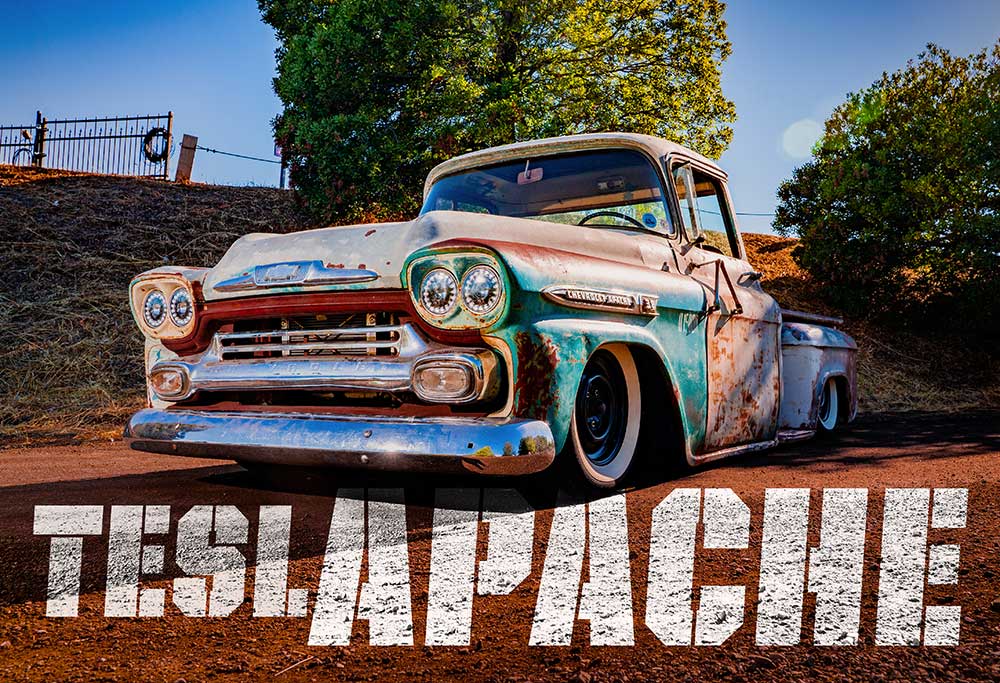
With the growing wave of EVs emerging from the horizon, a forming swell of doubt seems to be coming from the “opposition.” Questions of dependability, sustainability, and overall function are being thrown about from a lot of directions as more fully electric vehicles are introduced to the new-car marketplace—not to mention those coming from the custom segment as well.
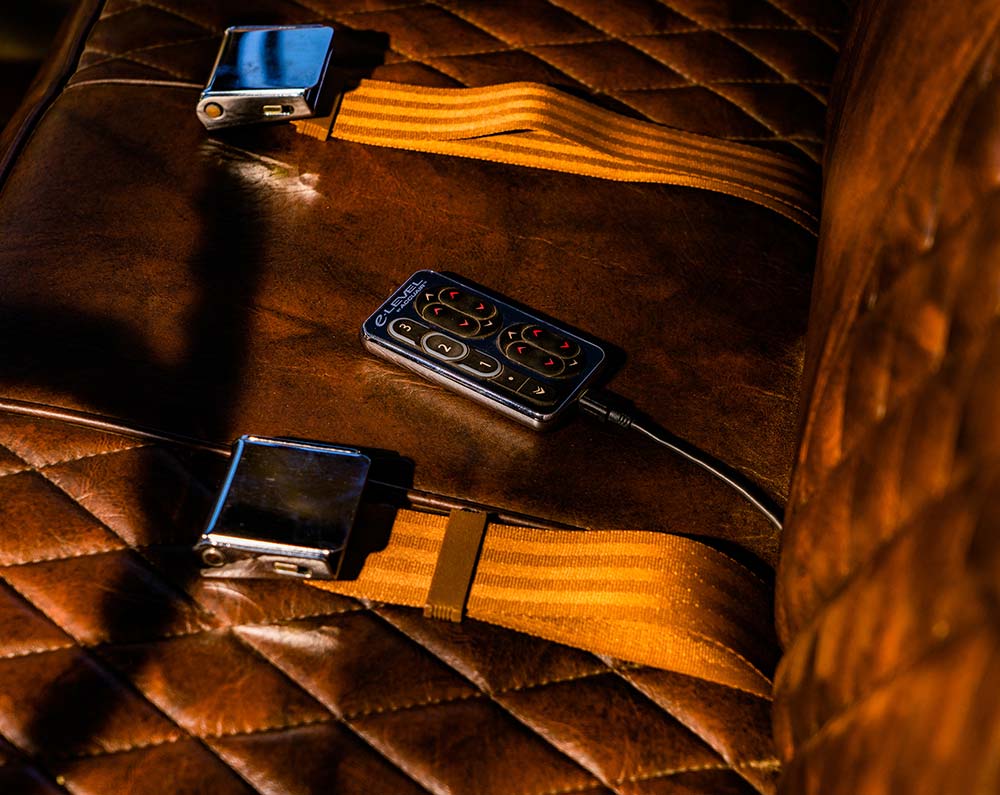
While the technology going into this new generation of battery-powered cars and trucks is technically “new” from an old-school, gas-guzzling perspective, the work and research that goes into retrofitting a classic truck with a voltage-powered drivetrain is still hot-rodding at the very core.
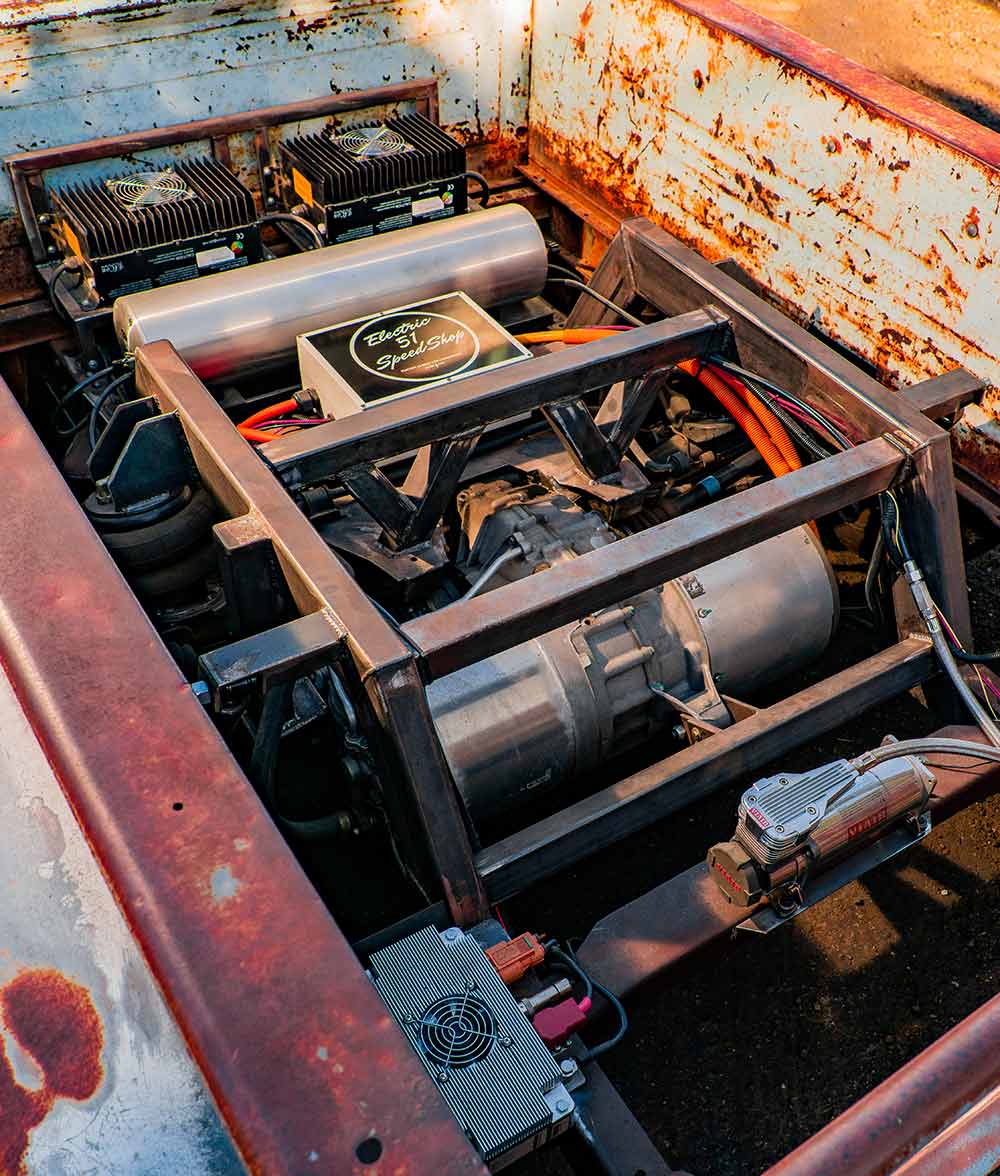
If you aren’t fully on-board with that sentiment just yet, wait until you’ve heard from Casey Loter and seen what he has done with his 1958 Chevy Apache pickup.
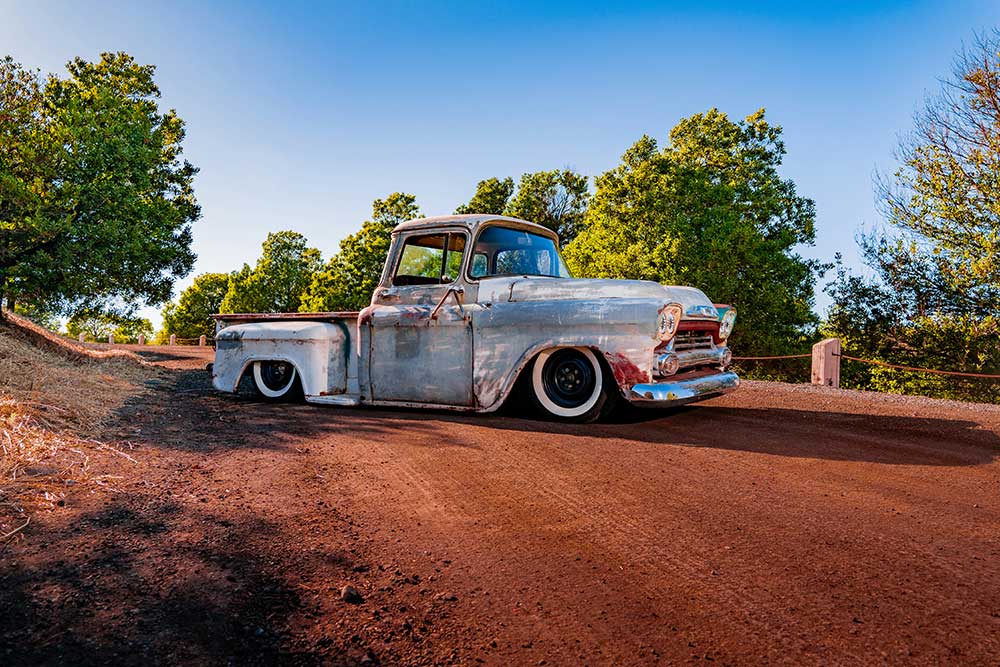
Casey operates Electric 51 Speed Shop in Salt Lake City, and even he would admit that he got into the EV game totally by chance. While finalizing the drivetrain for his project ’58, he felt that his only two real engine options were either an LS unit or a late ’58 348 Chevy engine. Both were viable power solutions, but they weren’t the most exciting selections to pick from. Casey felt bored and uninspired with the thought of going in either direction. This was the point when he began looking towards another option—one that had been talked about before in the classic truck community but never followed through to completion.
Yes, the direction Casey chose to go was electric—there’s not really a surprise there anymore—but “going electric” was such a vague term even just a few years back. The term didn’t even really mean a whole lot to Casey until he figured out just how he was going to make it happen.
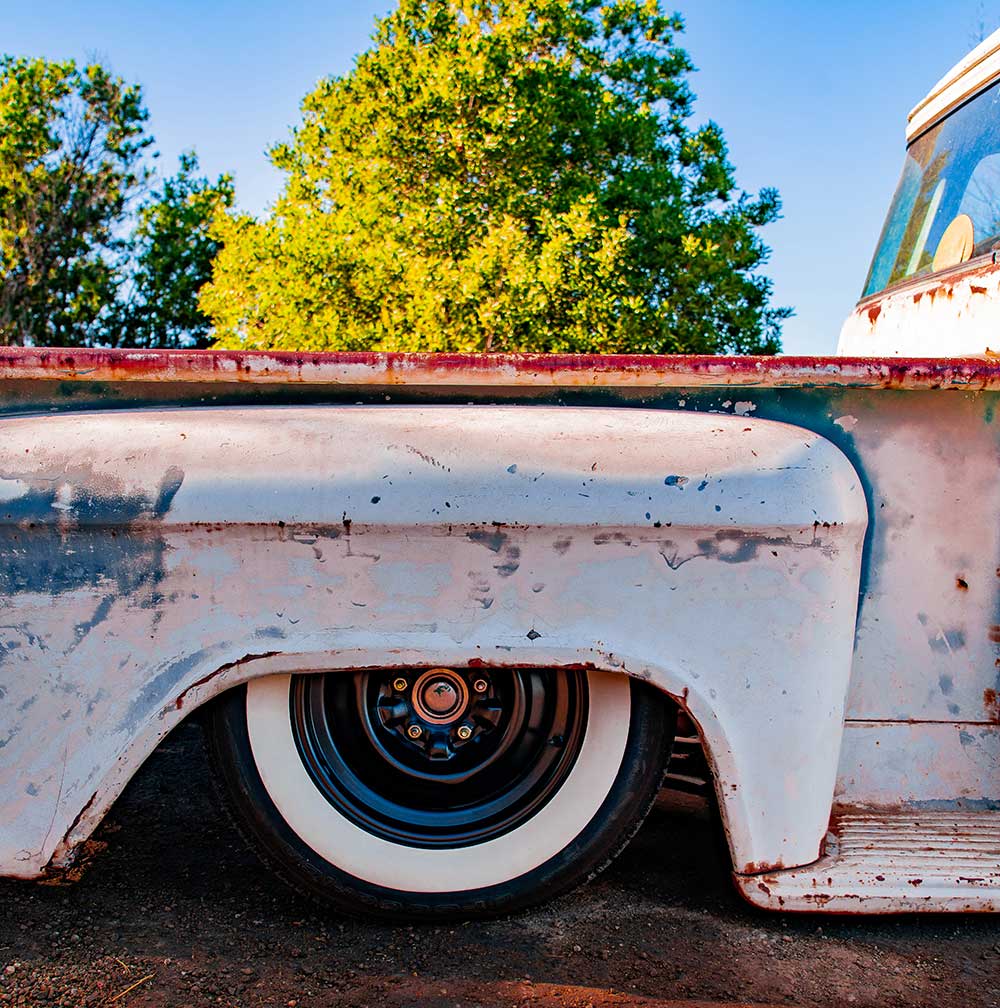
As it turns out, the salvaged Tesla motor market was the big resource that allowed Casey to lay the groundwork for his master plan. He was able to get his hands on a used 2016 Tesla Model S Large Drive Unit (LDU), which was actually capable of creating impressive power. With a kilowatt-hour rating of 400kWh with 450 nm (which roughly translates to 536hp and 332 lb-ft of torque), this plug-in Apache pickup would be no slouch on the streets.
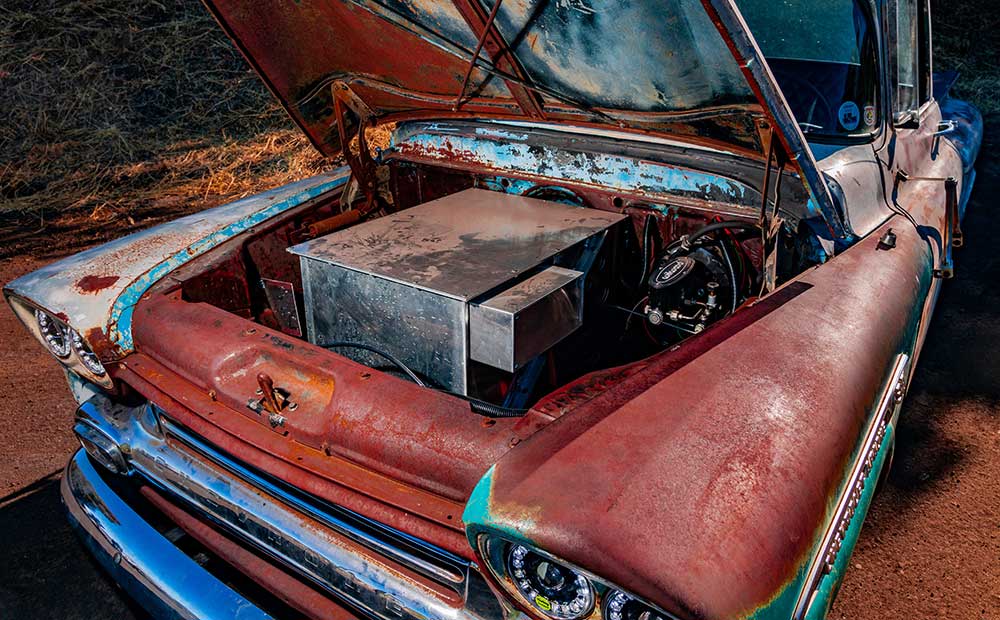
Along with the help from friends Joseph Horgen and Michael Bream, as well as plenty of guidance of the trusty internet, Casey took on the task of assembling all the parts necessary for a successful installation. The job was definitely a new experience for him, but one that he has grown excited about replicating and tweaking for customers looking to transform their classic gas-burning vehicles into classic all-electric vehicles.
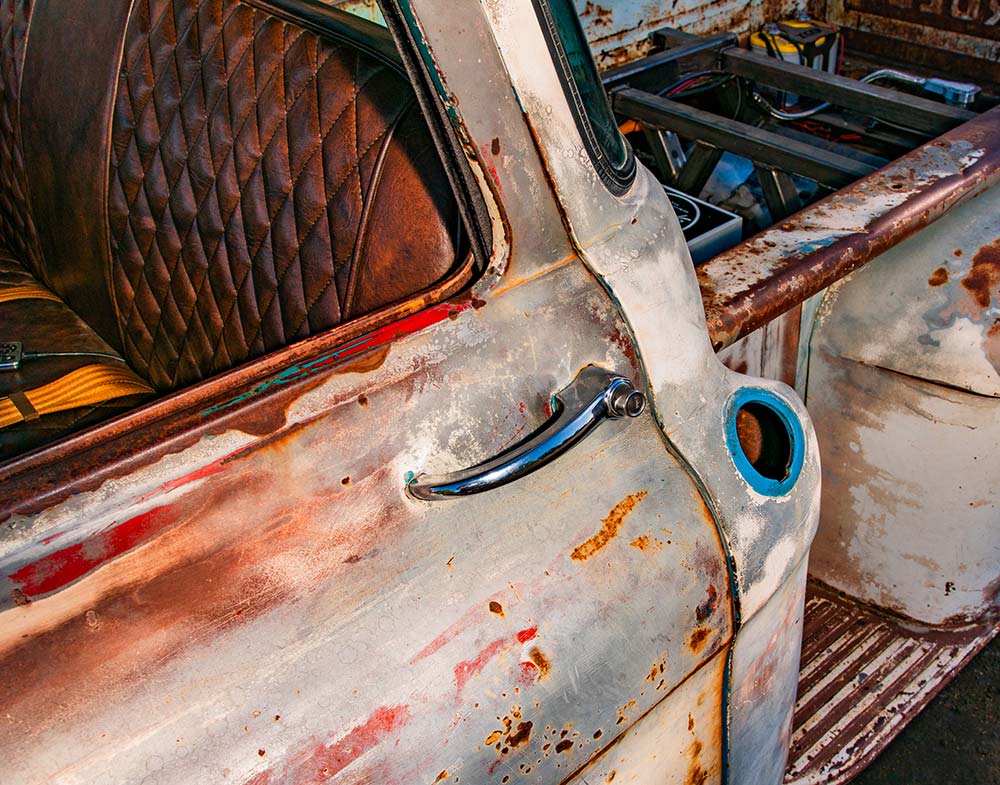
Now, the resulting driving experience isn’t anything like you might expect. This truck doesn’t putt around in circles like some kind of lame kid mobile; Casey’s Apache has real power and torque as well as serious acceleration. Yes, it’s capable of burning rubber. Yes, it could probably smoke most unsuspecting challengers that step to it. The Model S motor is definitely a high performance power source, and it creates a totally unique driving experience, especially when paired with a 64-year-old truck.
You’d really have to drive something like this to fully comprehend the experience and understand Casey’s newfound obsession with performance voltage.
Casey not only wanted his Chevy to go fast on electric energy, but he also wanted it to sit at an aggressive lowered height. To do so, the factory frame was first modified with an ’81 Camaro front suspension clip and a rear Cadillac IRS setup. Next, Ridetech Shockwave airbags were ordered for the front end, while Vixen 3600 bags were lined up for the back. To provide reliable, fully adjustable and programmable control of the air suspension, Casey chose to include an Accuair VT tank and an e-Level air management system to orchestrate the truck’s air ride system.
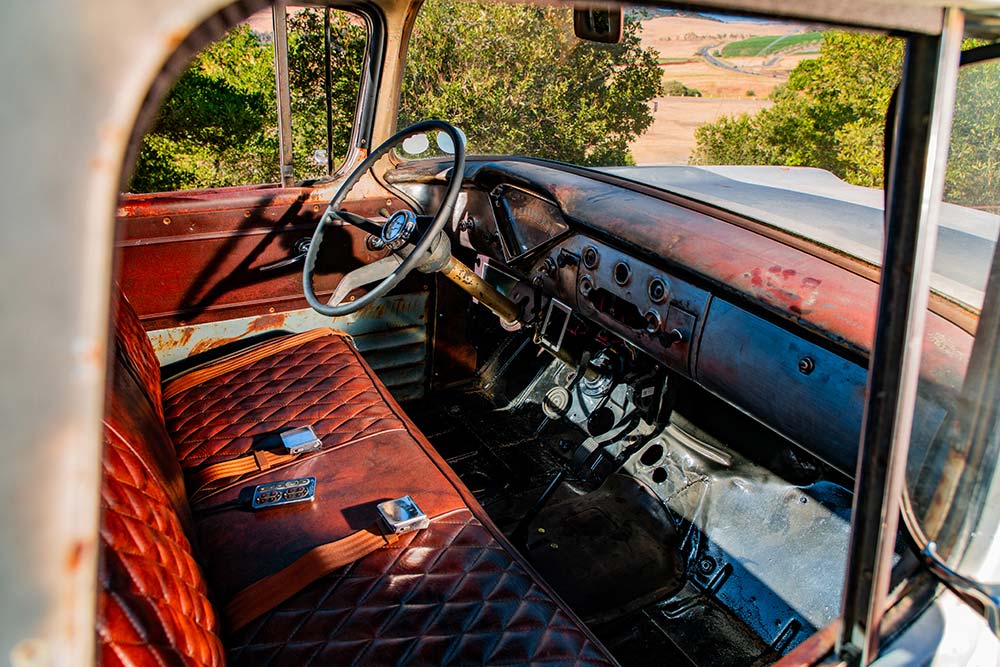
Modest 15-inch steel wheels and BF Goodrich whitewall tires were added to give the truck timeless street appeal. In fact, the rest of the Chevy’s exterior was left well enough alone for the most part. The patina is natural, and half of the glass is still original. The only thing that changed for the most part are the LED halo headlights, which isn’t enough to alter the truck’s classic styling.
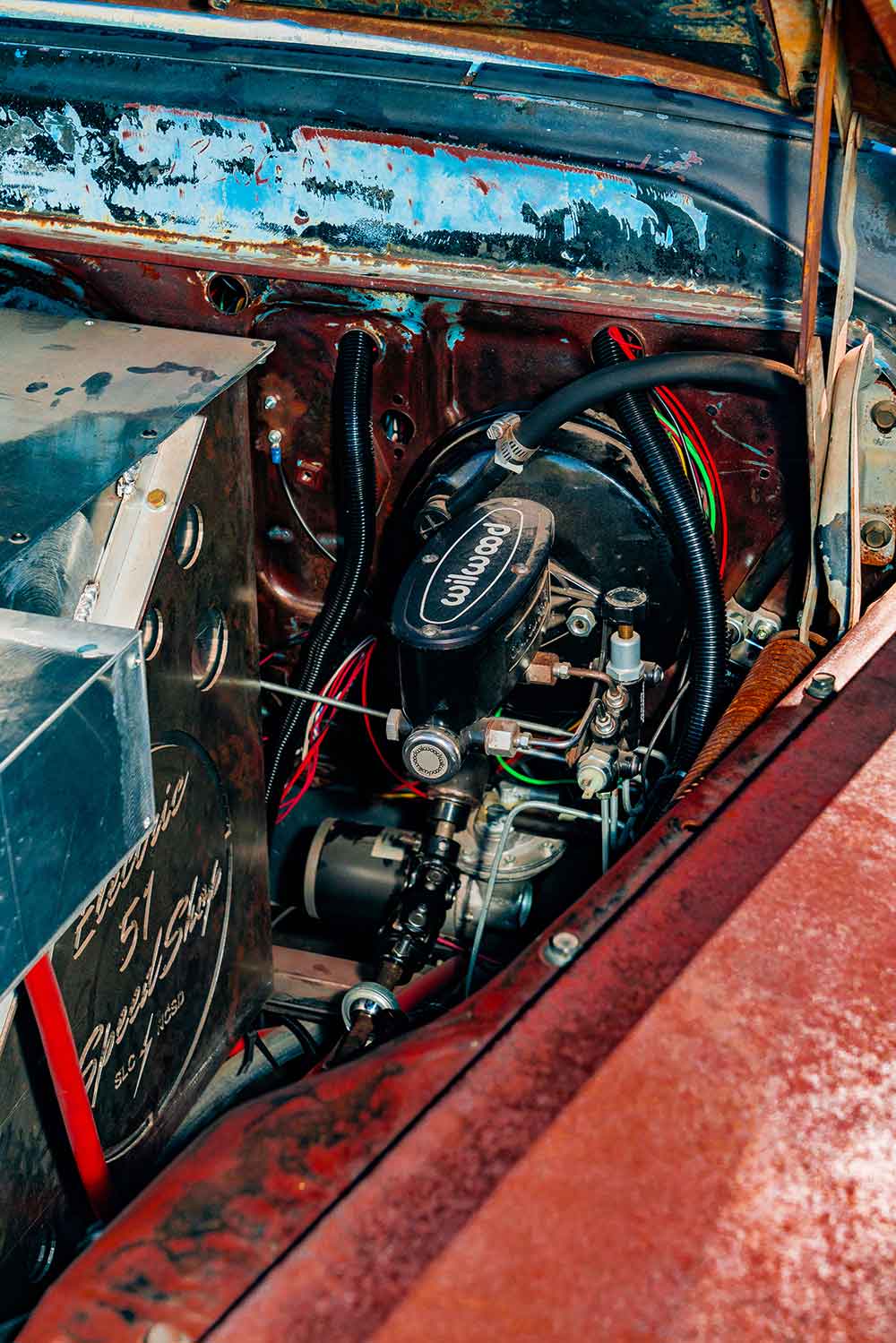
The same streamlined approach was taken inside the cab as well. Aside from the reimagined bench seat done by B62 Upholstery as well as the bare metal dash, the interior environment was left to maintain its mostly OG charm.
In the end, this wasn’t the type of build to include all the bells, whistles, and comforts found in a luxury vehicle. On the contrary; the Apache was to stand as a barebones, electric hot-rod that embodied all the familiar touches that diehard classic truck fans appreciate, along with the inclusion of state-of-the-art technology that forward-minded enthusiasts demand.
While the build process did require Casey to learn about harnessing a new-to-him energy source, it did lead to him succeeding and starting a business dedicated to transforming customers’ old cars and trucks into exciting electric hot-rods that will no doubt take commanding attention while on the road and at shows nationwide.
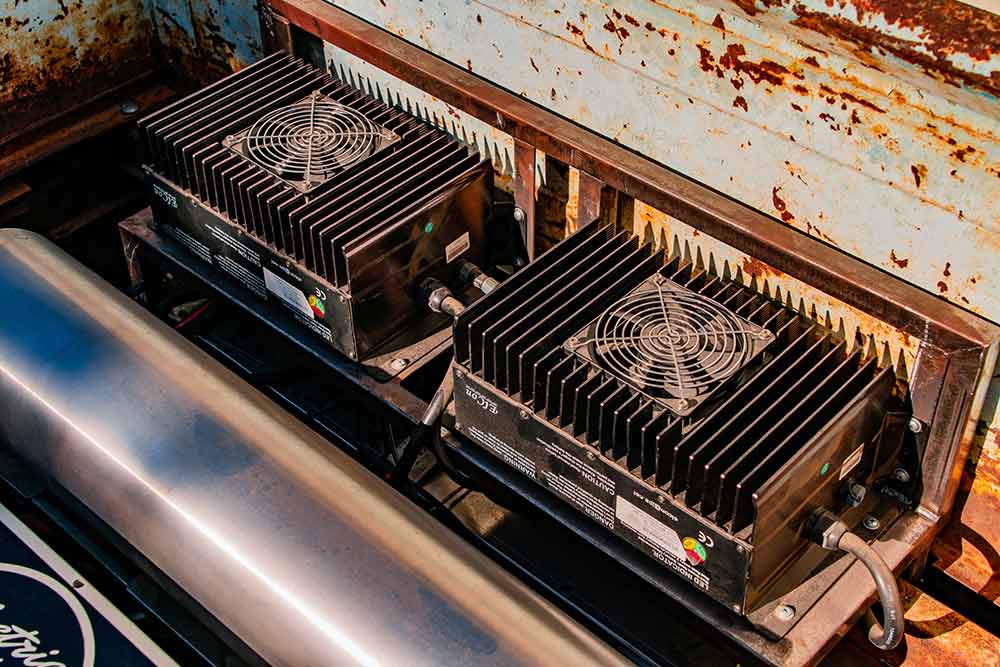
When asked how to properly assess if a vehicle is right for electric transformation, Casey suggests first deciding if the car or truck in question will be meant for daily driving or weekend cruising. This will help determine the batteries needed for the job, which is the majority of the cost involved in the process. Other than that, he also promotes allowing form to follow function and not allowing indecision to paralyze a build.
Casey’s Apache has been on the road three years now without incident, which stands tall as a testament to any questions regarding dependability, road-worthiness and ability to plow down the highway. In the end, it doesn’t matter what makes it move—it’s all hot rodding.
Owner
Casey Loter / Electric 51 Speed Shop
Salt Lake City, UT
1958 Chevy Apache
Engine
Chassis/Suspension
Wheels, Tires & Brakes
Body/Paint
Interior
Share Link